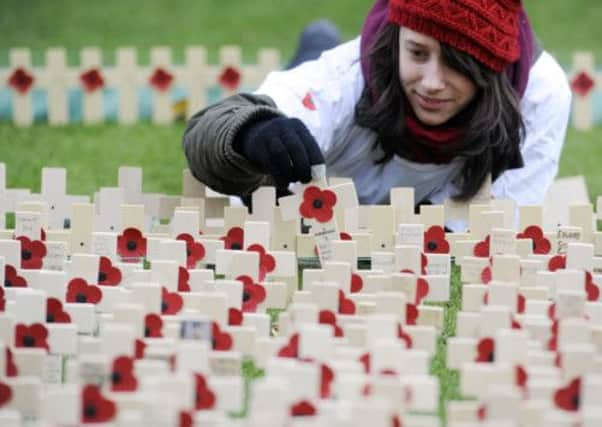War centenary ‘should honour Scots conchies’


The Reverend Ron Ferguson – former leader of the Iona community and a member of the Scottish Government’s World War I Commemorations Panel – has called for those who abstained from fighting in the war – labelled “conchies” – to be commemorated as part of wide-ranging plans to mark the start of the conflict.
“There will be plans to somehow incorporate other voices within the commemorations, voices that have been suppressed and forgotten,” Ferguson said.
Advertisement
Hide AdAdvertisement
Hide Ad“What I want to see personally is some event where there would be a recognition of conscientious objectors, people who campaigned against the war.
“The key thing is to make it educational, whether that be to talk to school groups, who might only hear about military casualties. There’s a bigger educational opportunity here to talk about conscience and war and to understand what it was the conscientious objectors did, and why.”
Although many records have been destroyed, Scotland is believed to have had many conscientious objectors during the 1914-18 war. According to the Peace Pledge Union around 236 have been identified. They were forced to work in a granite quarry at a hard labour camp in Dyce, near Aberdeen.
One of Scotland’s most famous conscientious objectors, Arthur Woodburn, an engineer’s clerk who refused to go to war and spent three years in jail for his views, later became Labour’s Secretary of State for Scotland, from 1947 to 1950.
Ferguson added: “Being a conscientious objector was an extremely brave thing to do. They endured a lot of hatred and hostility. They were tough people and I think it is a moral example of bravery. We’re not looking for statues, it’s more a question of taking on the debate of when it is legitimate to go to war.
“This is still a huge issue in our own time, given the questions over the Iraq war and more recently in Syria, questions over chemical warfare and what the bounds of decency in terms of warfare are. These are public issues that young people should be getting into.”
Other commemorative events planned for next year include a Commonwealth ceremony in Glasgow and a drum-head service on the Esplanade at Edinburgh Castle to mark the declaration of war on 4 August 1914, replicating the church services staged on the front-line that used neatly piled drums as makeshift altars.